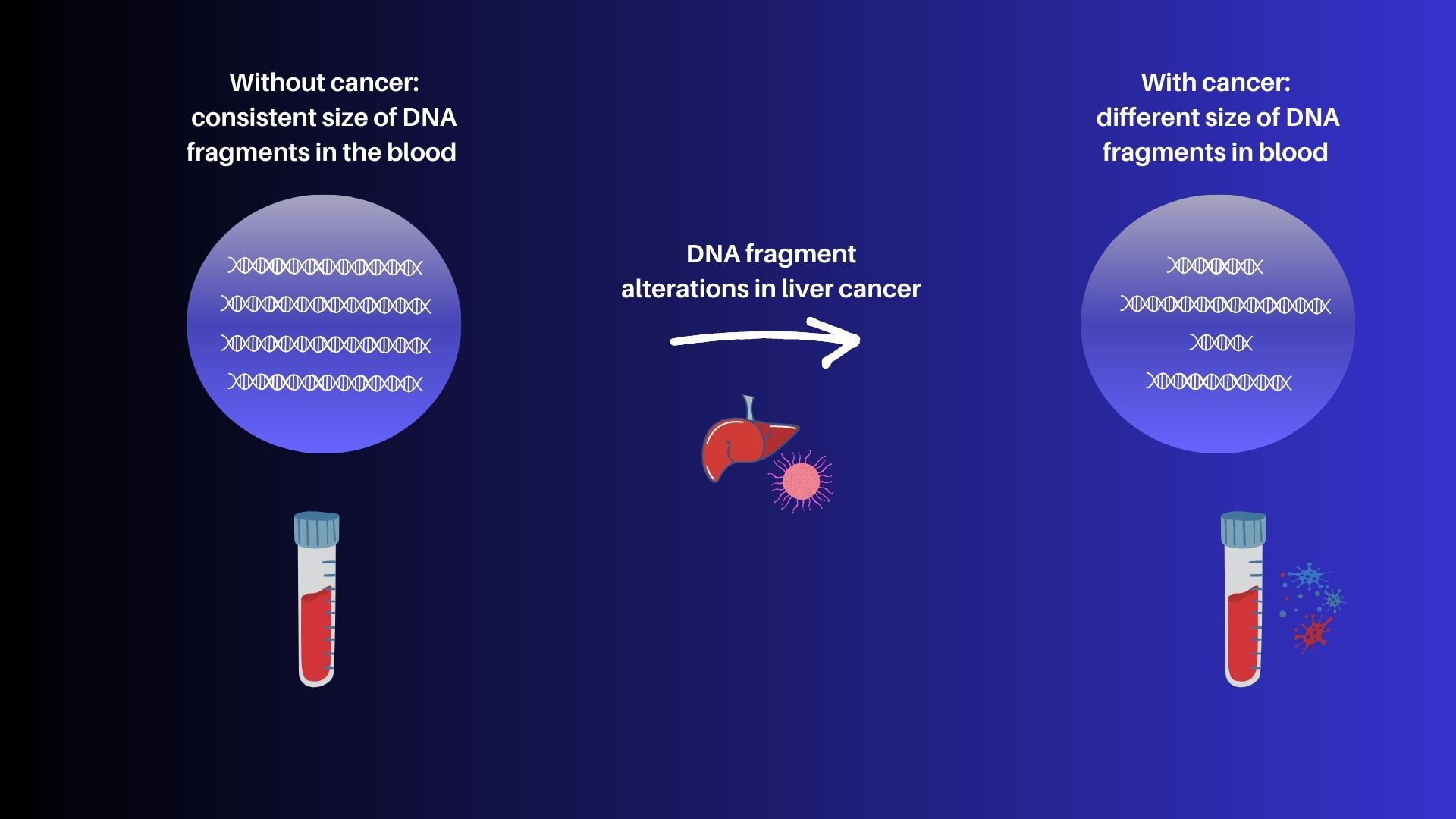
Fragmentomics: A Breakthrough in Liver Cancer Detection?
Detecting liver cancer early is crucial for improving survival rates, but current methods have limitations. However, researchers have recently pioneered a groundbreaking blood test using fragmentomics, a novel technology. This test shows remarkable promise in accurately detecting liver cancer, even in its early stages. By harnessing machine learning algorithms and analyzing DNA fragment patterns in the blood, fragmentomics offers a more precise and accessible approach to identifying individuals with liver cancer. This breakthrough not only addresses the shortcomings of existing tests but also opens doors for detecting other types of cancer. Prepare for a revolution in liquid biopsies with fragmentomics.
Liver cancer ranks as the third leading cause of cancer-related deaths worldwide, highlighting the urgent need for early detection methods to improve survival rates. In a remarkable study, researchers have developed a blood test using a novel technology called fragmentomics, which shows promising potential for accurately detecting liver cancer, including early-stage disease. This innovative approach addresses the limitations of current tests, such as low accuracy, limited accessibility, and high cost. The use of machine learning algorithms in conjunction with fragmentomics data analysis has paved the way for a more precise and accessible method of identifying individuals with liver cancer.
 HCC is unique in comparison with other solid cancers in that there is a large, well-defined high-risk population with an average 3% to 4% annual risk of developing HCC recommended to have routine cancer screening every 6 months. Unfortunately, currently available tests have limited diagnostic utility, especially for early-stage disease.
HCC is unique in comparison with other solid cancers in that there is a large, well-defined high-risk population with an average 3% to 4% annual risk of developing HCC recommended to have routine cancer screening every 6 months. Unfortunately, currently available tests have limited diagnostic utility, especially for early-stage disease.
The significance of early detection
Early detection plays a crucial role in enhancing the prognosis and survival rates of liver cancer patients. With over 900,000 new cases and 800,000 deaths annually, liver cancer poses a significant global health challenge. Survival rates vary greatly depending on the disease stage at diagnosis, emphasizing the critical need for accurate screening tools. Unfortunately, existing methods like abdominal ultrasound and alpha-fetoprotein (AFP) testing suffer from limited sensitivity and accessibility. Furthermore, there is a lack of noninvasive diagnostic approaches for liver cancer associated with nonalcoholic fatty liver disease (NAFLD). The development of a reliable blood-based test utilizing fragmentomics brings hope for improving liver cancer screening in high-risk populations.
Understanding fragmentomics
Fragmentomics is a cutting-edge technology that examines the patterns of DNA fragments in the blood. Unlike other liquid biopsy approaches, fragmentomics offers distinct advantages, including lower cost, reduced blood sample requirement, and broader applicability. By analyzing cfDNA fragmentation patterns, researchers can identify differences between individuals with and without liver cancer, thus enabling early detection and diagnosis.

The Study and its findings
The study involved analyzing plasma samples from 501 individuals, comprising 75 with liver cancer (HCC) and 426 without cancer. By employing a low-coverage whole-genome sequencing method, the researchers examined the genome-wide fragmentome profiles. The findings revealed that individuals without cancer exhibited consistent fragmentation profiles, while those with HCC displayed high variability. Notably, patients with cirrhosis or viral hepatitis exhibited fragmentation profiles similar to those without cancer, indicating the specificity of the test.
Moreover, the study investigated the association between cfDNA fragmentation patterns and chromatin structure. By comparing healthy individuals to HCC patients, the researchers identified differences in DNA binding of transcription factors (TFs) that play a role in liver tumorigenesis. These findings demonstrated that cfDNA fragmentation patterns reflect changes in chromatin organization and transcriptional programs in liver cancer cells. Additionally, a similar analysis conducted in a lung cancer study revealed enrichment of coverage differences in TF binding sites related to lung cancer, indicating the potential application of fragmentomics in detecting various types of cancer.
The potential of fragmentomics and future directions
The researchers believe that fragmentomics holds promise not only for liver cancer detection but also for identifying other types of cancer. A company founded by one of the researchers is actively working on developing the test for commercial use. The broad applicability, lower cost, and reduced blood sample requirement associated with fragmentomics make it a potential game-changer in the field of liquid biopsies.
 The high performance of cfDNA fragmentome analyses in HCC detection, along with its cost-efficient characteristics, would allow DELFI to be an accessible screening test for HCC and to increase the screening rates beyond the currently dismal levels.
The high performance of cfDNA fragmentome analyses in HCC detection, along with its cost-efficient characteristics, would allow DELFI to be an accessible screening test for HCC and to increase the screening rates beyond the currently dismal levels.
While the study showed promising results, it is important to note that further research is necessary to evaluate the test's performance in a larger population. This would help ensure the test's accuracy, reliability, and effectiveness in diverse groups. Additionally, ongoing efforts to refine the machine learning algorithms and expand the genomic and clinical data sets will contribute to the continued advancement of fragmentomics as a reliable diagnostic tool for liver cancer and other cancers.
Conclusion
In conclusion, the development of a blood test utilizing fragmentomics technology marks a significant advancement in the field of cancer diagnostics. This breakthrough offers hope for improved detection, early intervention, and ultimately, better patient outcomes in the fight against liver cancer and other malignancies. By harnessing the power of fragmentomics and machine learning, we are on the cusp of a transformative era in liquid biopsies and personalized medicine.